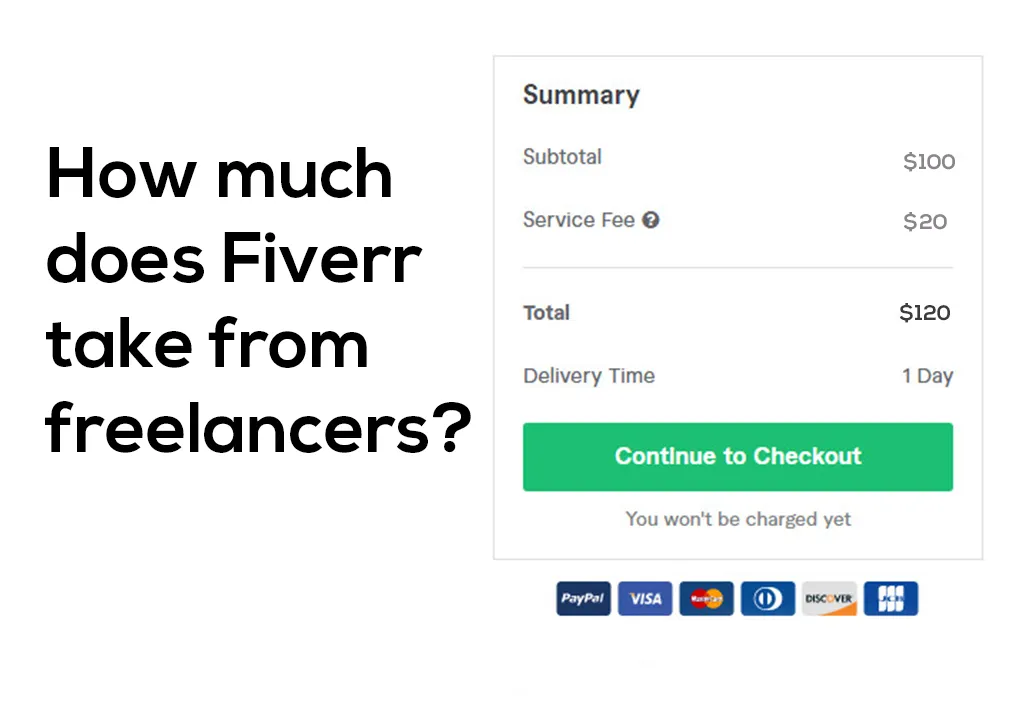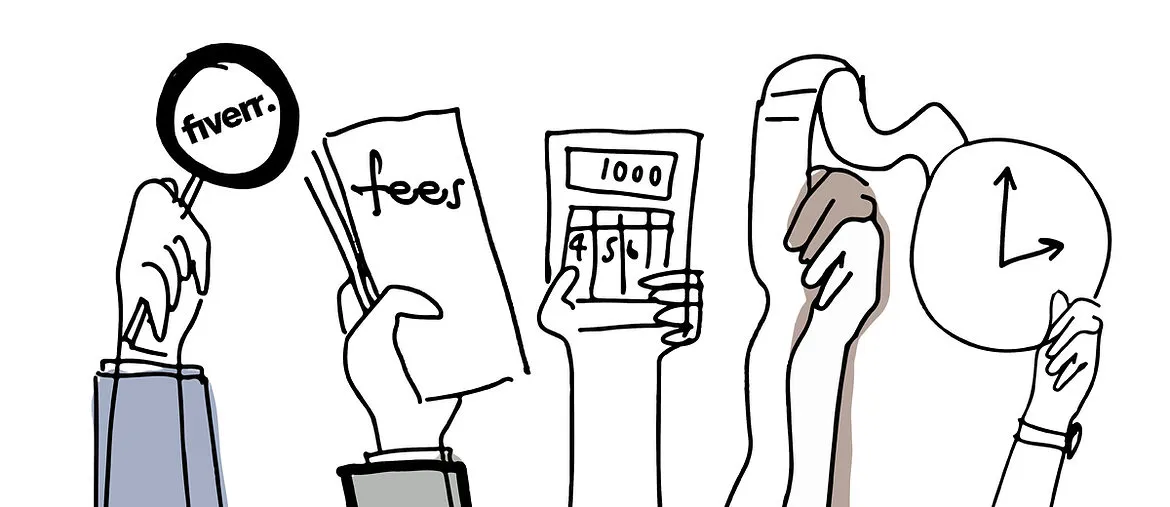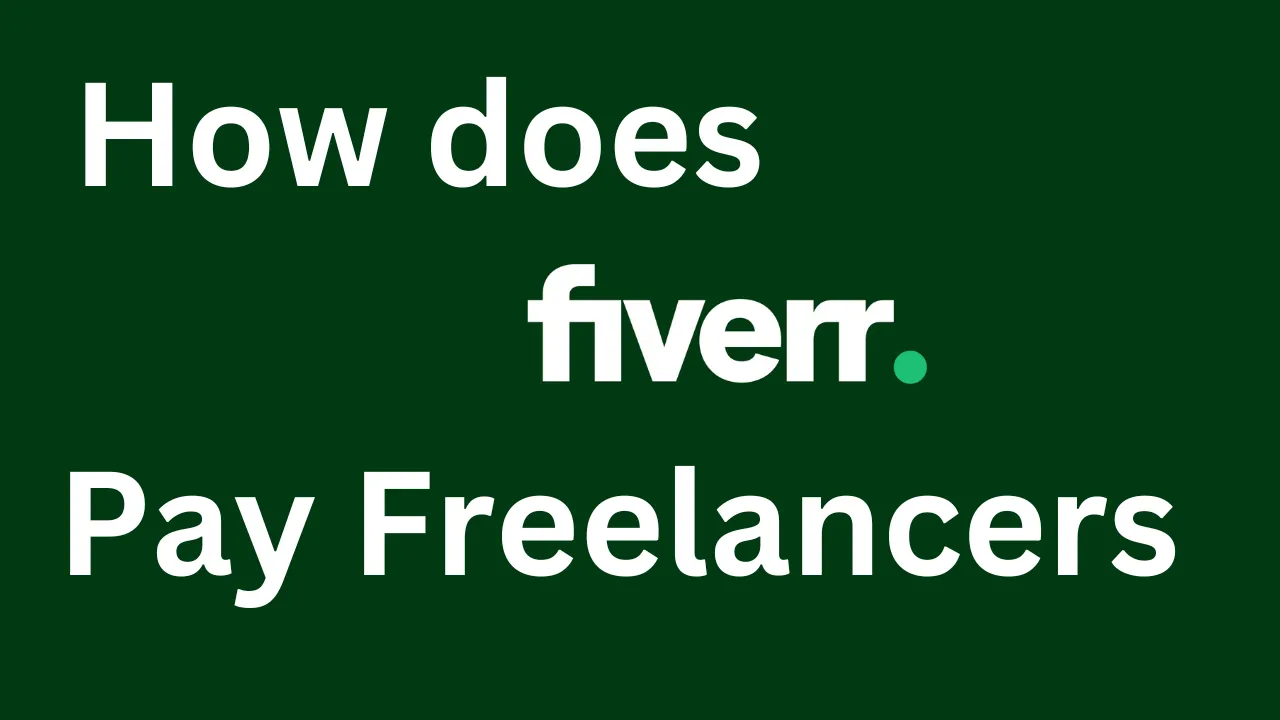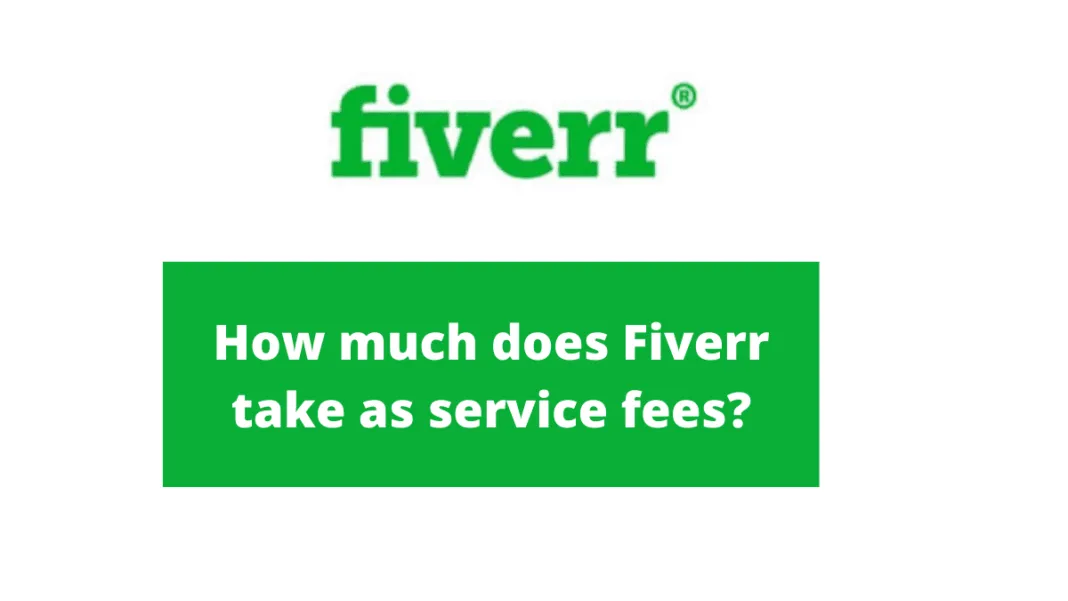If you've ventured into the world of freelancing, chances are that you've heard of Fiverr. This popular platform allows freelancers to offer their services in various categories, from graphic design to writing and even coding. However, while diving into freelancing, many newcomers wonder, "Does Fiverr charge tax?" It's a common question, and understanding the fees and tax implications on Fiverr is essential for both freelancers and clients. In this post, we'll break down how Fiverr operates, its fee structure, and the tax considerations you should be aware of. Let’s get started!
What is Fiverr?

Fiverr is an online marketplace that connects freelancers with clients seeking various services. Launched in 2010, it has rapidly grown to become one of the largest freelance platforms in the world. On Fiverr, sellers (freelancers) create profiles showcasing their skills, and buyers can browse these profiles to find suitable service providers. The platform operates on a unique gig-based system, where services, or "gigs," start at just $5, hence the name “Fiverr.”
Here’s a closer look at some key features of Fiverr:
- Diverse Categories: Fiverr offers a wide range of categories, including:
- Graphic Design
- Digital Marketing
- Writing & Translation
- Video & Animation
- Programming & Tech
- Business Services
- User-Friendly Interface: The platform is designed for ease of use, making it simple for buyers to find what they need and for sellers to list their services.
- Rating & Review System: Freelancers are rated by clients, allowing future buyers to make informed decisions based on past performance.
- Secure Transactions: Fiverr manages payments between buyers and sellers, ensuring a safe and reliable environment.
Overall, Fiverr has revolutionized freelancing, creating opportunities for millions around the globe. Whether you're seeking a specific service or looking to sell your skills, Fiverr can be an excellent platform to consider.
Also Read This: How to Sell eBooks on Fiverr: A Step-by-Step Guide
Understanding Fiverr's Fee Structure

When you think about using Fiverr, one of the first questions that might pop into your mind is, “What are the costs involved?” Understanding Fiverr's fee structure is crucial for both freelancers and clients. At its core, Fiverr operates on a simple model: they take a commission from the earnings of freelancers and may charge service fees to clients.
Here’s a quick breakdown:
- Seller Fees: When freelancers sell their services, Fiverr takes a commission. This is generally 20% of the total order value. So, if you’re a seller earning $100, you’ll receive $80 after Fiverr’s cut.
- Service Fees for Buyers: Clients also face some extra costs. Fiverr charges a service fee on orders, which varies depending on the price of the order. For example, a common structure is:
| Order Amount | Service Fee |
|---|---|
| $5 - $40 | $2 |
| $40.01 - $100 | $3 |
| Above $100 | Up to 5% of the order amount |
It’s important to consider these fees when budgeting for your project or pricing your services. By understanding the fee structure, you can make informed decisions whether you’re buying or selling services on Fiverr. Remember, transparency is key!
Also Read This: How to Cancel an Order That Has Already Started on Fiverr
Does Fiverr Charge Sales Tax?

When it comes to the matter of sales tax on Fiverr, things can get a bit tricky. In the United States, sales tax policies vary from state to state, and while Fiverr typically does not add a sales tax to its service fees or seller commissions, they do comply with state laws where necessary.
Here’s what you need to keep in mind:
- Buyer Responsibility: As a buyer, you may be responsible for reporting and paying any applicable sales tax based on your location, even if Fiverr doesn’t charge it directly.
- Freelancer Policy: For freelancers, Fiverr does not automatically deduct sales tax from payments. However, if you are required to collect sales tax from your customers, you’ll need to handle that on your own. It's a good idea to check local regulations to ensure compliance.
- Service Area Variability: Different regions may impose different rules, so remember that it's wise to stay informed about what applies to your specific situation.
In essence, while Fiverr streamlines many aspects of freelancing, it’s up to you to stay informed about your tax obligations. It’s always a good idea to consult with a tax professional if you're uncertain about how taxes apply to your work on the platform. Better to be safe than sorry, right?
Also Read This: How to Get a Fiverr Refund
How Fiverr Handles Taxes for Freelancers

When it comes to managing taxes, Fiverr takes a structured approach to ensure freelancers remain compliant with applicable tax laws. While Fiverr doesn't directly withhold taxes, it provides a few mechanisms to help freelancers navigate this complex landscape.
First, it's essential to understand that Fiverr acts as a platform connecting sellers (freelancers) and buyers (clients). Payment for services rendered is processed through Fiverr, and they generate a 1099 form for freelancers earning above a certain threshold. Here's how it typically works:
- No Withholding: Fiverr doesn't withhold taxes from your earnings, meaning you receive the full payment for your services. This gives you flexibility, but it also places the responsibility of tax management on your shoulders.
- Year-End Form: If you earn more than $600 in a calendar year, Fiverr will provide a 1099 form, which outlines the total income you need to report on your taxes.
- International Considerations: For sellers outside of the U.S., Fiverr may provide a different form, like the 1042-S, depending on the tax treaty agreements between countries.
In short, while Fiverr is not responsible for withholding taxes, they do provide the necessary documentation to help you file your taxes accurately. It's always wise for freelancers to consult a tax professional to ensure they're meeting their tax obligations appropriately.
Also Read This: Freelance Design Pricing Guide
Tax Responsibilities for Fiverr Sellers
As a seller on Fiverr, understanding your tax responsibilities is crucial for maintaining compliance and avoiding any potential penalties. Here’s a breakdown of what you need to keep in mind:
- Report Your Earnings: Regardless of whether you receive a 1099 form, you're required to report all income you earn on Fiverr when filing your taxes. This includes any extra revenue from tips or upsells.
- Self-Employment Tax: If you operate as an independent contractor, you might have to pay self-employment taxes, which cover Social Security and Medicare contributions.
- State and Local Taxes: Depending on your location, you may also be responsible for state and local sales taxes. It’s important to check your regional requirements.
- Deductions: As a freelancer, you may be eligible for certain deductions, such as home office expenses, software subscriptions, or other costs related to your freelancing activities.
- Estimated Payments: Freelancers often need to make estimated tax payments quarterly, especially if they expect to owe a significant amount at the end of the year.
In essence, managing your tax responsibilities as a Fiverr seller is about staying organized and informed. Consider consulting with a tax advisor to maximize your deductions and ensure compliance with both federal and local tax laws.
Also Read This: What Freelance Filmmakers Can Earn
7. Tax Responsibilities for Buyers
When it comes to purchasing services on Fiverr, buyers often wonder about their tax obligations. Understanding these responsibilities is crucial to ensure compliance with local laws and regulations. So, what should you keep in mind?
First off, it’s important to note that most countries impose tax on digital services, which means that if you’re buying a gig on Fiverr, you may be responsible for paying some form of sales tax. Here’s a quick breakdown:
- Sales Tax: In the United States, for example, certain states require sales tax to be collected on online services. Fiverr typically adds this tax at checkout, but it’s wise for buyers to check if these charges are applicable in their state.
- Value Added Tax (VAT): For buyers residing in the European Union, Fiverr applies VAT to certain purchases based on local laws. As a buyer, you’ll notice this charge reflected in your total cost.
- International Transactions: If you’re a buyer purchasing from a different country, be aware of any additional customs or transaction fees that may apply.
Beyond just paying taxes, buyers should also keep accurate records of their transactions. This includes saving invoices and receipts as these documents can be important when filing taxes or if you're claiming business expenses.
In summary, while Fiverr handles much of the tax calculation at checkout, it’s vital for buyers to remain informed about their potential tax liabilities and maintain proper documentation for their own records.
Also Read This: What is a Package in Fiverr?
8. Conclusion: Navigating Taxes on Fiverr
Navigating the world of taxes on a platform like Fiverr can seem daunting at first. But once you break it down into digestible pieces, it becomes easier to manage. Here’s what we’ve learned:
| Key Takeaway | Details |
|---|---|
| Understanding Fees: | Fiverr charges buyers a service fee on top of the gig price and is responsible for collecting certain taxes, like VAT for EU buyers. |
| Seller Tax Responsibilities: | Sellers are responsible for reporting their income, which may include accounting for any taxes depending upon local laws. |
| Buyer Tax Responsibilities: | Buyers may need to pay sales tax or VAT based on their location and keep good records for tax season. |
It’s always wise to consult with a tax professional if you’re uncertain about how to handle your situation. Remember, tax laws can be complex and vary widely by jurisdiction.
By staying informed and organized, both buyers and sellers can navigate Fiverr's fee structure and tax implications with confidence. Happy freelancing!
Does Fiverr Charge Tax? Understanding Fees and Taxes on Freelance Platforms
Fiverr is a popular online marketplace that connects freelancers with clients looking for various services, ranging from graphic design to writing. However, a common question among users is whether Fiverr charges tax on its services. Understanding the fees and taxes associated with this platform is crucial for both freelancers and clients.
The fees on Fiverr can vary depending on the type of service and the location of the users involved. Here’s a breakdown of the typical costs:
| Type of Fee | Description |
|---|---|
| Service Fee for Buyers | Fiverr charges a service fee which is typically 5% of the total purchase price, capped at $2. |
| Service Fee for Sellers | When a seller completes an order, Fiverr takes a commission of 20% from the total earnings. |
Regarding taxes, Fiverr does not directly charge sales tax on services provided through the platform. However, it’s essential to note:
- Tax Responsibilities: Freelancers are generally responsible for reporting their income and paying any applicable taxes in their respective jurisdictions.
- VAT Considerations: Depending on the location, Value Added Tax (VAT) may apply, which could be added to the final price for buyers in certain regions.
- Tax Documentation: Fiverr provides sellers with detailed earnings reports that can assist in preparing tax documents.
In conclusion, while Fiverr itself does not charge tax directly, users must be aware of their tax liabilities and the applicable fees on the platform to effectively manage their finances as freelancers or buyers.



